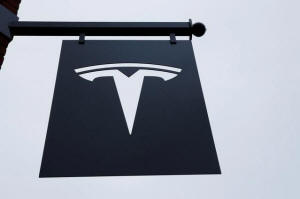|
Tesla to clarify how
customers may disclose problems
 Send a link to a friend
Send a link to a friend
 [June 11, 2016]
By David Shepardson [June 11, 2016]
By David Shepardson
WASHINGTON (Reuters) - Tesla Motors Inc on
Friday revised a nondisclosure clause in its customer repair agreements
after a U.S. regulator took issue with the practice, while the electric
carmaker's chief executive separately called most customer reports of
suspension problems in its Model S sedan fraudulent.
Tesla CEO Elon Musk went on the offensive on social media, saying in
a tweet that 37 of 40 suspension complaints filed with the U.S.
National Highway Traffic Safety Administration were fraudulent.
"Would seem to indicate that one or more people sought to create the
false impression of a safety issue where none existed," he wrote.
The NHTSA would only say that the company was cooperating fully with
its review and that no suspension problems had been found "to date."
Musk said the complaints were "fraudulent" because a "false location
or vehicle identification numbers were used."
Reuters reported Thursday that anonymous individuals have filed a
number of complaints of suspension problems on NHTSA's website,
citing salvaged Tesla vehicles.

NHTSA spokesman Bryan Thomas said Tesla was cooperating "and NHTSA’s
examination of the data is under way. To date, NHTSA has not
identified any safety issue with Tesla’s suspensions."
He declined to comment on Musk's assessment of the complaints. On
Thursday, NHTSA had criticized Tesla for entering into a
"troublesome nondisclosure agreement" with a Model S owner with a
suspension problem.
On Friday, NHTSA said "Tesla has clarified the language ... in a
satisfactory way, resolving the issue" of the nondisclosure
agreements..
Alexis Georgeson, a spokeswoman for the California-based green car
maker, confirmed the change.
NHTSA said Thursday it was reviewing reports of suspension problems,
but had not opened a formal investigation.
Tesla has denied any suspension problems, saying extensive
durability testing and review of customer issues "gives us high
confidence in our suspensions."
The possible safety defect in the Tesla Model S was reported on
earlier this week by the auto-oriented website Daily Kanban, which
cited owner complaints. The website linked to a Model S owner who
wrote on a Tesla fan website that he had suspension problems and had
received an email from an NHTSA investigator.

[to top of second column] |

A Tesla logo hangs on a building outside of a Tesla dealership in
New York, U.S., April 29, 2016. REUTERS/Lucas Jackson/File Photo

The owner said Tesla agreed to pay 50 percent of a $3,100 repair bill if the
owner agreed to keep the arrangement confidential.
Tesla said Thursday the car with over 70,000 miles had abnormal rust and that
the Pennsylvania owner lived down such a long dirt road that it required two tow
trucks to retrieve the car. The owner said the car had only been on a dirt road
once or twice, and Musk later conceded to the Wall Street Journal that Tesla had
erred in saying the owner lived on a dirt road.
NHTSA Administrator Mark Rosekind said on Thursday that the agency was reviewing
the nondisclosure agreements to see if they had impeded owners from making
complaints.
Tesla said in a blog post late on Thursday that it "has never and would never
ask a customer to sign a document to prevent them from talking to NHTSA or any
other government agency." But the company said it often requires customers to
sign a "goodwill agreement" with a nondisclosure clause when the company agrees
to cover or discount repairs even if it is not responsible.
Tesla noted the agreement did not mention NHTSA, and said it did not intend to
stop customers from communicating problems to the agency.

NHTSA said on Thursday it "learned of Tesla’s troublesome non-disclosure
agreement last month. The agency immediately informed Tesla that any language
implying that consumers should not contact the agency regarding safety concerns
is unacceptable."
(Editing by Matthew Lewis and David Gregorio)
[© 2016 Thomson Reuters. All rights
reserved.] Copyright 2016 Reuters. All rights reserved. This material may not be published,
broadcast, rewritten or redistributed. |